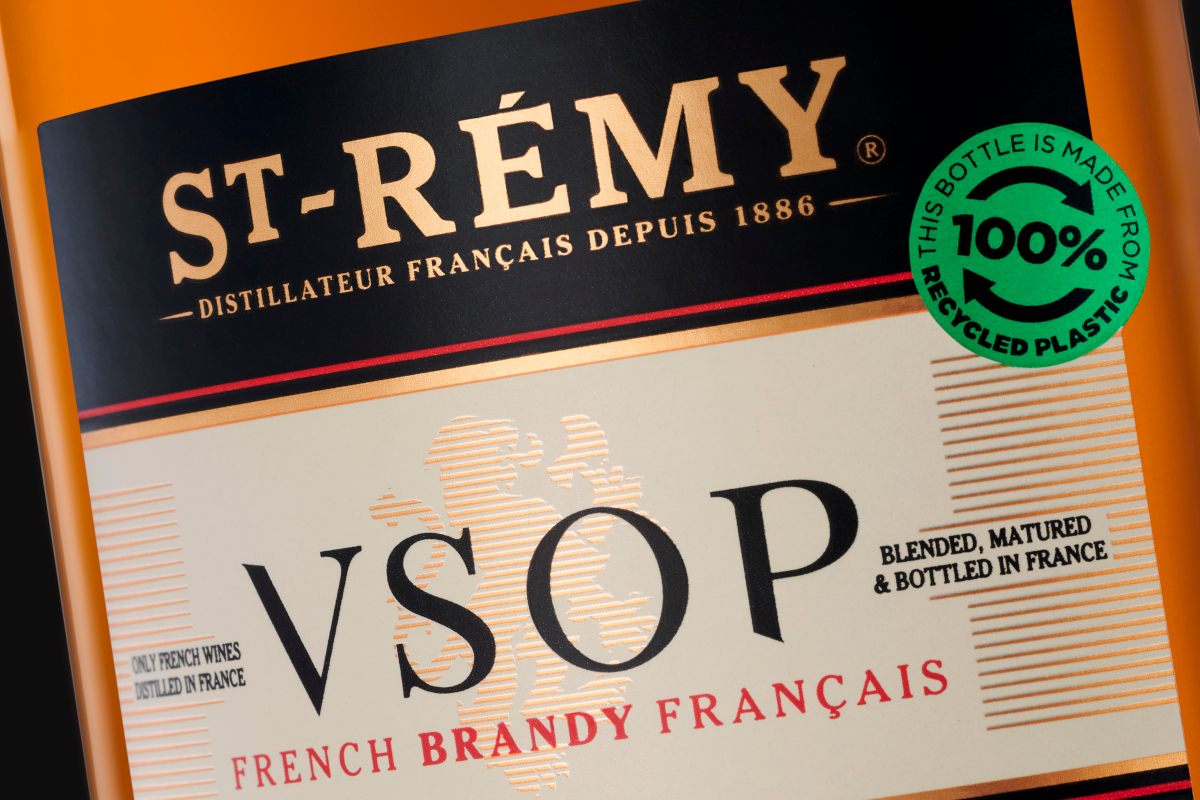Leading French brandy producer, St Rémy, is changing the materials used for three of its most popular formats: St-Rémy XO and VSOP 50cl, and St-Rémy VSOP 1.75l, a move the producer believes will reduce per-bottle CO2 emissions by 29 per cent.
The company will swap PET plastic (currently used) for recycled PET plastic. PET, which stands for Polyethylene Terephthalate, is a lightweight and sturdy plastic. Recycled PET, or RPET, is produced using 100 per cent recycled materials, and is itself also recyclable.
Hervé Buzon, St-Rémy’s International Marketing Director, said: “We consider it a very important task to not only do our bit to use more eco-friendly materials in our packaging, but also inspire our customers to do that bit extra by disposing of their St-Rémy products properly, thereby ensuring they can be collected and turned into future bottles.”
According to St-Rémy, not only will this change reduce emissions, it will also shrink the distillery’s water and energy usage by a third, when compared to traditional PET bottles. The brandy-maker also believes the move will save 50 tonnes of ‘virgin’ plastic, and 100 tonnes of CO2 annually.
Bottles made with RPET will feature a green sticker proclaiming ‘this bottle is made from 100 per cent recycled plastic’.
This change forms part of a larger commitment to sustainability from St-Rémy’s owners, Rémy Cointreau. The Rémy Cointreau Group has in place a Sustainable Exception roadmap, with an ambition to reduce emissions per bottle by 50 per cent by 2030, and net zero by 2050.
Bottle production is a key area of this roadmap, with Rémy Cointreau targeting ‘eco-conception’ for 100 per cent of its bottles by 2025.

